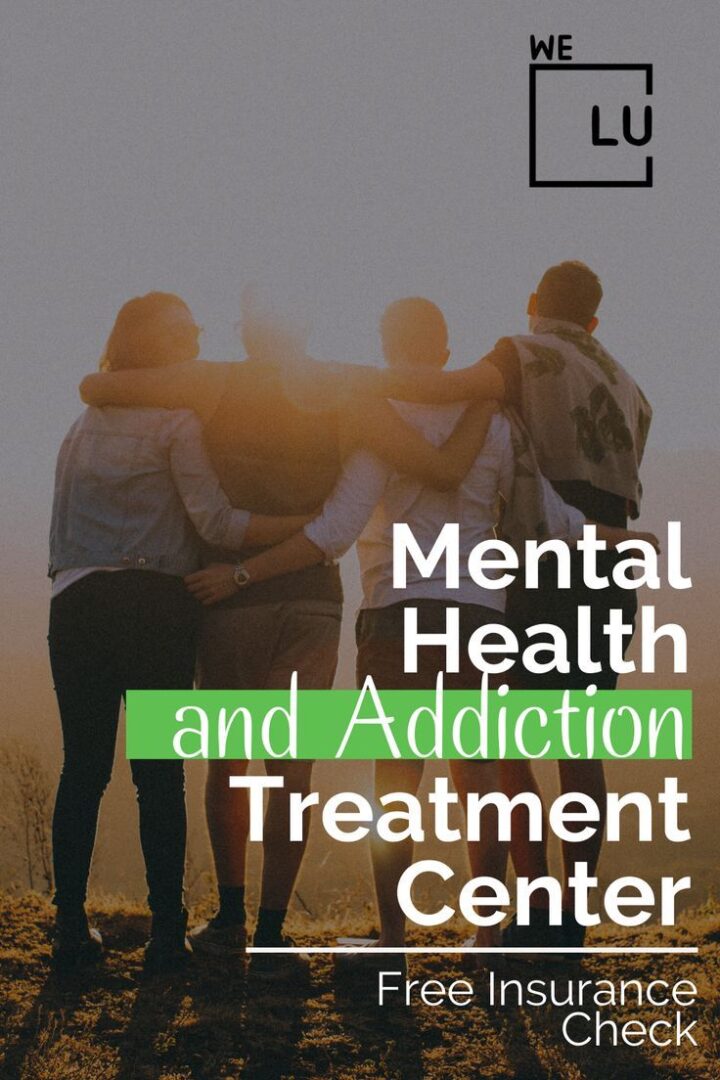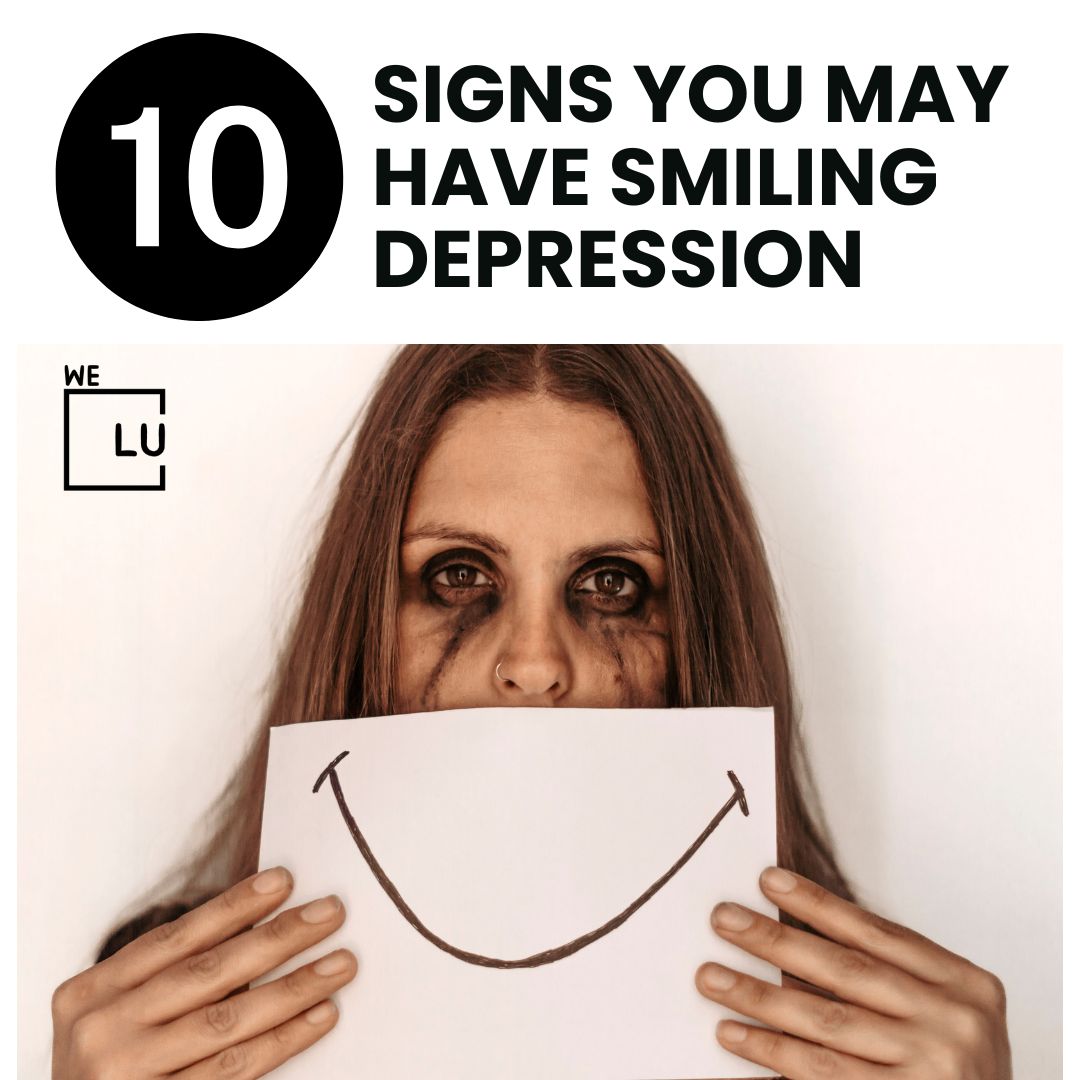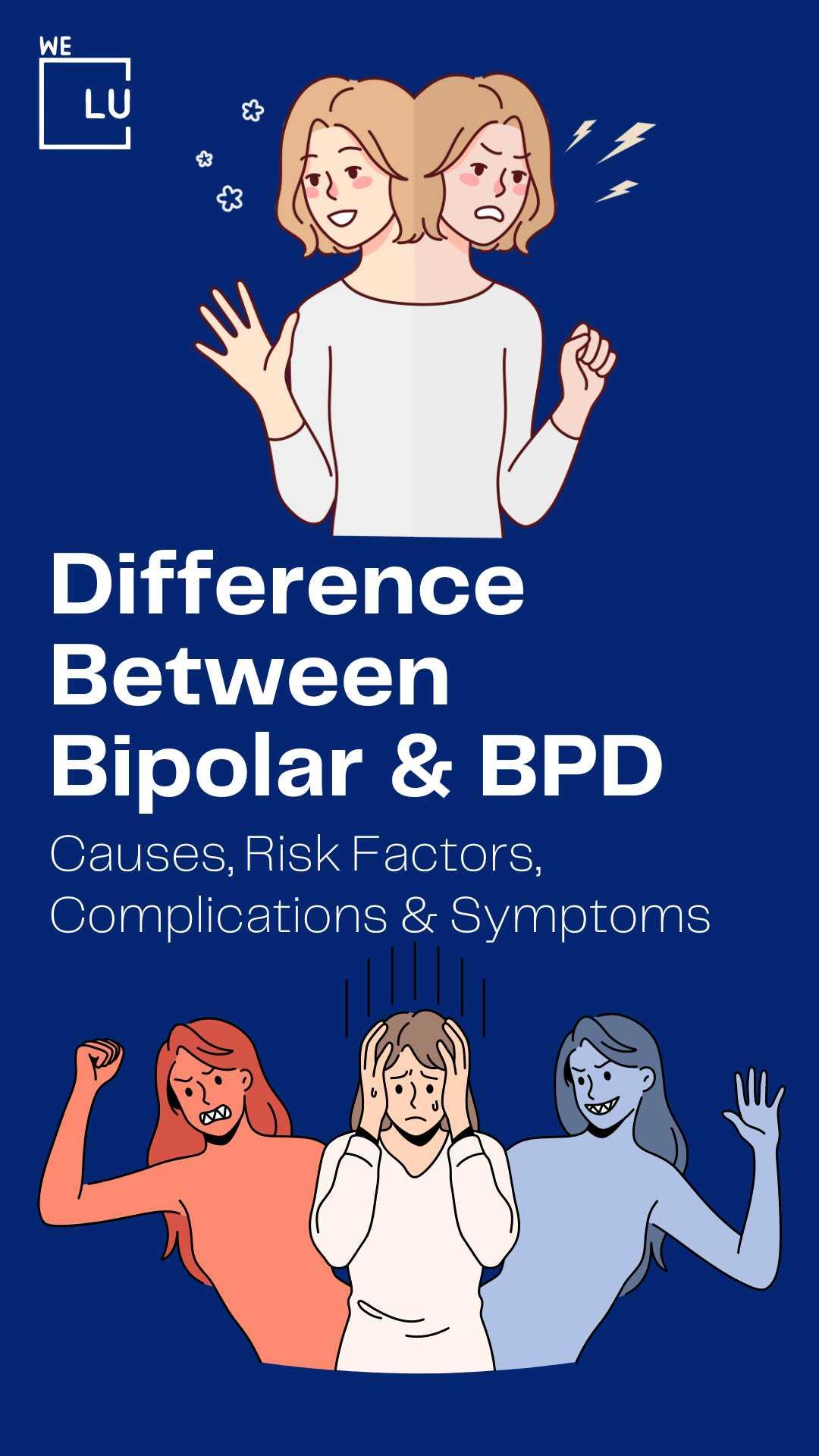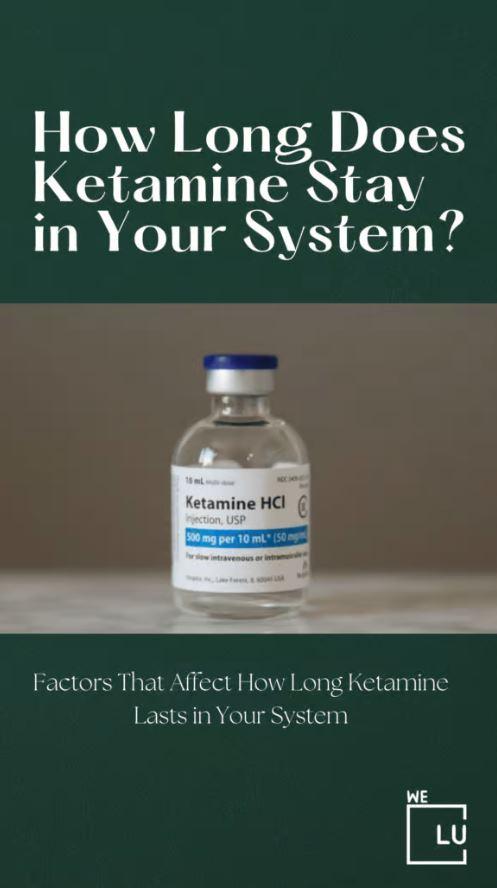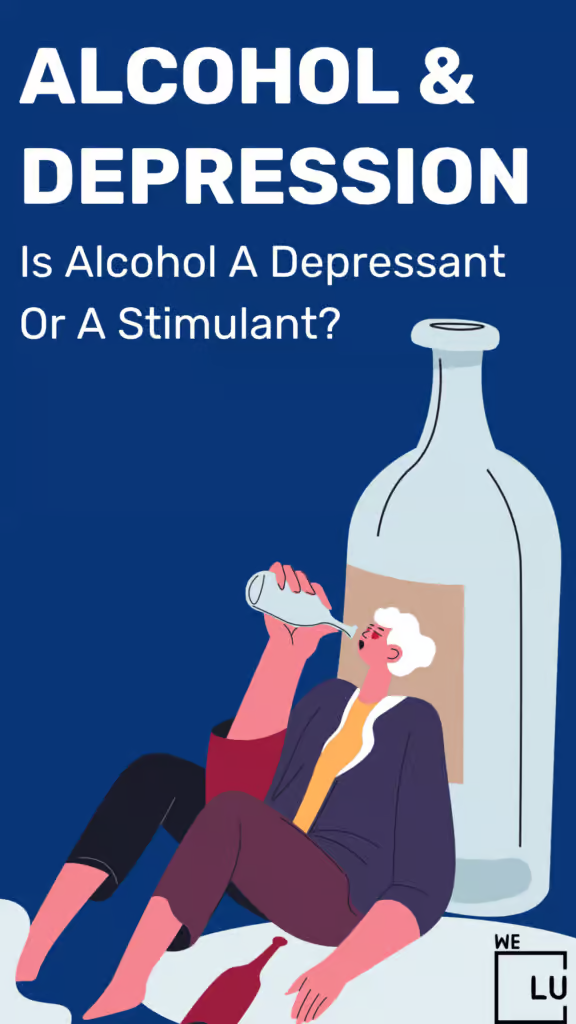How Long Does Postpartum Depression Last?
Postpartum depression is a significant mental health condition that affects some women following childbirth. A joint inquiry is, “How long does postpartum depression last?” Although the duration varies among individuals, it typically persists for several weeks to a few months.
However, if left untreated, some women may experience symptoms for an extended period, up to a year or more. Recognizing signs, seeking help, and implementing appropriate treatment are pivotal for recovery. Understanding the timeline of postpartum depression is essential for supporting and empowering affected mothers on their journey to wellness.
Postpartum depression often begins in the first few weeks after giving birth, peaking around the fourth or fifth week and lasting several weeks or months if untreated. It’s noteworthy that some women may endure symptoms for a more prolonged duration, reaching up to a year or beyond.
The initial weeks post-childbirth, known as the postpartum period, involve significant physical and hormonal changes, sleep deprivation, and adjustment to caring for a newborn, providing a breeding ground for postpartum depression. Early symptoms include persistent sadness, excessive crying, irritability, anxiety, appetite changes, sleep difficulties, loss of interest in activities, and overwhelming fatigue.
In many cases, postpartum depression improves with time and appropriate treatment, supported by loved ones, healthcare professionals, and interventions like therapy or medication. Seeking help early is vital to prevent worsening and potential long-term consequences.
While postpartum depression often resolves within the first few months, some women experience a prolonged form, lasting up to a year or more, necessitating more comprehensive treatment. Additionally, postpartum psychosis, though rare, demands immediate medical attention due to its sudden onset and severe symptoms, posing serious risks to both mother and baby.
Each woman’s experience with postpartum depression is unique and influenced by factors like symptom severity, personal circumstances, support systems, and treatment effectiveness. Seeking help is a courageous step toward better mental health, not a sign of weakness. (1)
How Long Can Postpartum Depression Last?
The duration of postpartum depression varies significantly among individuals. While many women witness an improvement in symptoms within the initial months after childbirth, for others, postpartum depression may persist.
Various factors contribute to the duration of postpartum depression. The severity of symptoms, personal circumstances, access to support systems, and the effectiveness of treatment all play roles in shaping the timeline.
In some instances, postpartum depression may evolve into a chronic condition termed chronic postpartum depression, extending beyond the typical timeframe and necessitating prolonged treatment and support.
It’s crucial to recognize that postpartum depression is a treatable condition. Seeking professional assistance from healthcare providers specializing in perinatal mental health is essential for accurate diagnosis, treatment planning, and ongoing support. With appropriate interventions like therapy, medication, support groups, and lifestyle adjustments, women can find relief from symptoms and progress toward recovery. (2)
Can Postpartum Depression Last For Years?
How long does postpartum depression typically last? In most cases, it persists for several weeks to a few months, but there are instances where it can extend over years. While less common, some women experience an enduring and persistent form known as chronic postpartum depression.
Chronic postpartum depression manifests when depressive symptoms linger for an extended period, often surpassing the first year after childbirth. Women dealing with this type of postpartum depression may face significant challenges in their daily functioning, relationships, and overall quality of life.
Various factors contribute to the prolonged duration of postpartum depression. These may include the severity of symptoms, the presence of additional mental health conditions, insufficient treatment or support, underlying biological or genetic factors, and personal circumstances such as a lack of social support or high-stress levels.
The impact of chronic postpartum depression can be profound, affecting both the mother and her family. Early recognition, accurate diagnosis, and appropriate treatment are crucial for addressing this condition effectively. Mental health professionals can offer personalized support, therapy, and, if necessary, medication to manage symptoms and facilitate recovery. (3)
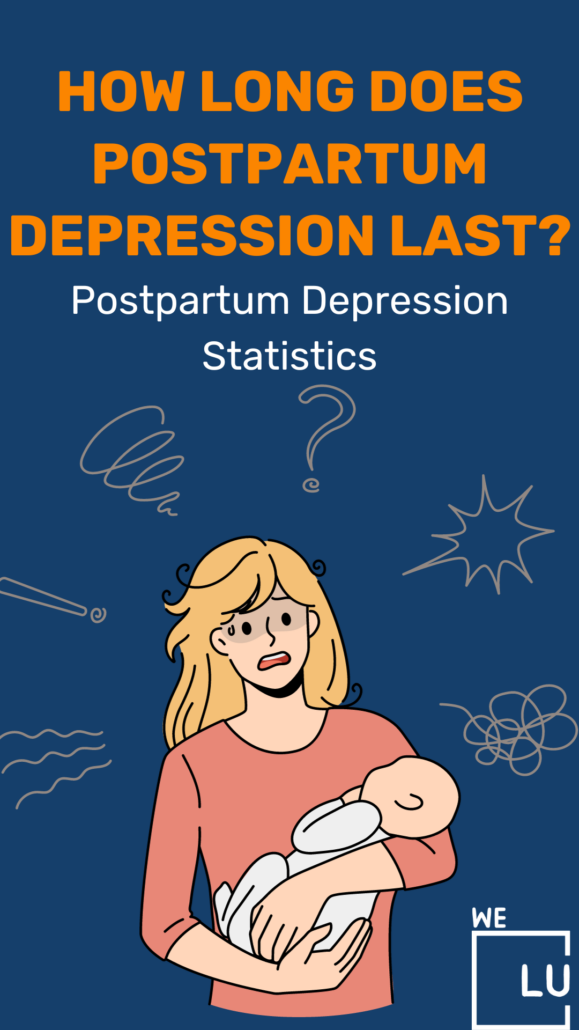
Skip To:
Learn More:
- Postpartum Depression Symptoms & Causes
- How Alcohol and Depression are Linked? Abuse Signs & Causes
- Bipolar Depression Symptoms, Causes, Effects, and Treatment
- 10 Signs You May Have Smiling Depression
- Depression Treatment, Understanding the Symptoms & Causes
- High Functioning Depression, Dual Diagnosis Treatment in TX
- Mental Health Assessment for Mental Illness Treatment
- Mental Health Treatment. Warning Signs, Types of Treatment, Therapies, Medications & How To Get Help.
When Does Postpartum Depression Start?
Postpartum depression typically persists for weeks or months, and its intensity can be notable. The onset usually occurs approximately 1-3 weeks after giving birth. This condition might hinder your ability to attend to your own needs, care for your baby, and manage other familial responsibilities. It’s important to note that postpartum depression is a widespread experience, and many individuals grapple with it.
Why Does Postpartum Depression Happen?
Following childbirth, a significant decrease in the hormones estrogen and progesterone may play a role in the development of postpartum depression. Additionally, other hormones produced by the thyroid gland may sharply decline, leading to feelings of fatigue, sluggishness, and depression.
Get Help. Get Better. Get Your Life Back.
Searching for Accredited Drug and Alcohol Rehab Centers Near You? We Level Up Texas Is Opening Soon!
Even if you have failed previously and relapsed, or are in the middle of a difficult crisis, we stand ready to support you. Our trusted behavioral health specialists will not give up on you. When you feel ready or just want someone to speak to about therapy alternatives to change your life call us. Even if we cannot assist you, we will lead you to wherever you can get support. There is no obligation. Call our network hotline today.
FREE Addiction Hotline – Call 24/7Postpartum Depression We Level Up FL Mental Health Center Tip
Feel free to rely on your support network, including friends and family, for assistance and understanding. Make self-care a priority, ensuring sufficient rest, proper nutrition, and personal time for relaxation. Keep in mind that postpartum depression is a prevalent and treatable condition, and seeking help is a testament to your strength, not a sign of weakness.
Depression Fact Sheet
Depression Overview
Depression is a category of illnesses, such as depression or bipolar disorder, associated with fluctuations in mood, ranging from elevated to depressive states. (7)
Types of Depression
Clinical Depression: A mental health disorder marked by a consistently depressed mood or a lack of interest in activities, leading to substantial impairment in daily life.
Persistent Depressive Disorder: A mild yet enduring form of depression.
Bipolar Disorder: A condition involving episodes of mood swings spanning from depressive lows to manic highs.
Bipolar II Disorder: A subtype of bipolar disorder distinguished by depressive and hypomanic episodes.
Postpartum Depression: Depression occurring after childbirth. (8)
Depression Treatments
- Support Group: A gathering where individuals pursuing a common goal or dealing with the same condition, such as weight loss or depression, can receive counseling and share their experiences.
- Cognitive Behavioral Therapy: A therapeutic approach focused on altering negative attitudes, behaviors, and feelings associated with psychological distress.
- Counseling Psychology: A specialized branch of psychology addressing issues related to the self in work, school, family, and social life.
- Anger Management: Techniques employed to diminish harmful emotional outbursts involving mindfulness, coping skills, and trigger avoidance.
- Psychoeducation: Mental health education designed to provide support, validation, and empowerment to individuals.
- Family Therapy: Psychological counseling aimed at enhancing family communication and resolving conflicts. (9)
How Long Does Postpartum Depression Last? Depression Statistics
One of the most prevalent mental diseases in the US is major depression. Some people with serious depression may experience substantial impairments that impede or restrict their capacity to engage in important life activities. (10)
21 million
An estimated 21.0 million adults in the United States had at least one major depressive episode. This number represented 8.4% of all U.S. adults.
Source: National Institute on Mental Health
10.5%
The prevalence of major depressive episodes was higher among adult females (10.5%) than males (6.2%).
Source: National Institute on Mental Health
17.0%
The prevalence of adults with a major depressive episode was highest among individuals aged 18-25 (17.0%).
Source: National Institute of Mental Health

Get Your Life Back
Find Hope & Recovery. Get Safe Comfortable Detox, Addiction Rehab & Dual Diagnosis High-Quality Care.
FREE Addiction Hotline – Call 24/7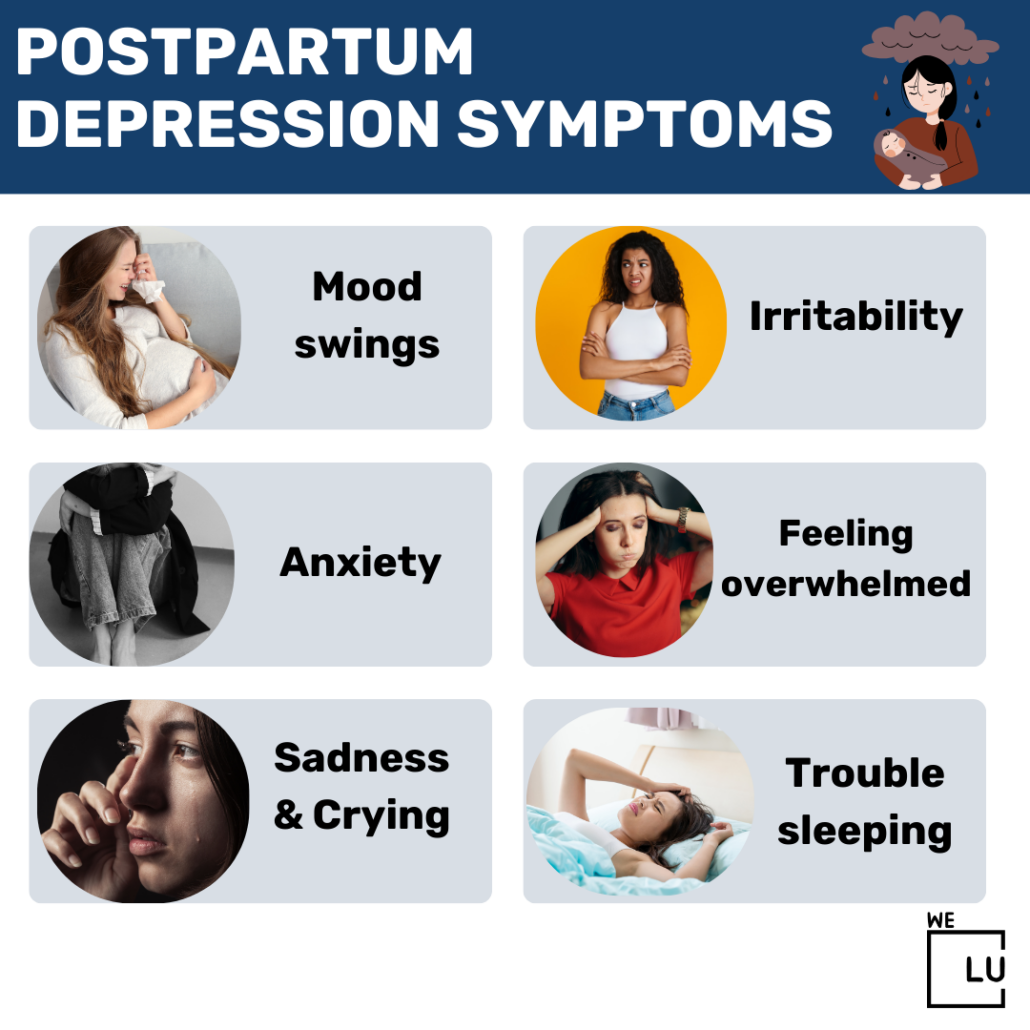
Signs Of Postpartum Depression Risk Factors
History of depression, either personally or within the family: Women with a previous depressive episode, whether during pregnancy or at other times, face an elevated risk of developing postpartum depression. Similarly, a family history of depression or other mental health disorders contributes to this risk.
Hormonal fluctuations: After childbirth, a woman experiences significant hormonal changes, including a rapid decline in estrogen and progesterone levels. These shifts can influence brain chemistry and play a role in the development of postpartum depression.
Stressful life events: Events like financial struggles, relationship issues, or the loss of a loved one during pregnancy or the postpartum period can heighten the risk of postpartum depression. The added emotional strain and pressure can lead to feelings of sadness, anxiety, and overwhelm.
Limited social support: Insufficient support from family, friends, or a partner can make adjusting to motherhood more challenging. The absence of a robust support system and assistance in newborn care can increase the vulnerability to postpartum depression.
Sleep deprivation: Newborns necessitate frequent care during the night, disrupting the sleep patterns of new mothers. Sleep deprivation can significantly impact mood and amplify the likelihood of developing postpartum depression.
Unplanned or unwanted pregnancy: Women facing an unplanned or unwanted pregnancy may be more susceptible to postpartum depression. The emotional and psychological impact of feeling unprepared or conflicted about motherhood can elevate stress levels and negative emotions.
Complications during pregnancy or childbirth: Dealing with complications such as preterm birth, medical issues, or a challenging delivery can be emotionally distressing and heighten the risk of postpartum depression.
Neglecting self-care: Failing to prioritize self-care and personal well-being can affect mental health. New mothers who struggle to address their needs and engage in self-care activities may face an increased risk of postpartum depression. (4)
Opening Soon! First-Class Facilities & Amenities
World-Class High-Quality Addiction & Mental Health Rehabilitation Treatment
Coming Soon! Rehab Centers TourRenowned Addiction Centers. Serene Private Facilities. Inpatient Rehab Programs Vary.
FREE Addiction Hotline – Call 24/7Proven recovery success experience, backed by a Team with History of:
- 15+ Years Experience
- 100s of 5-Star Reviews
- 10K+ Recovery Successes
- Low Patient to Therapist Ratio
- Onsite Medical Detox Center
- Comprehensive Dual-Diagnosis Treatment
- Complimentary Family & Alumni Programs
- Coaching, Recovery & Personal Development Events
Postpartum Depression Treatment
- Therapy: Psychotherapy, including cognitive-behavioral therapy (CBT) or interpersonal therapy (IPT), is often the initial recommendation for treating postpartum depression. These therapeutic approaches assist individuals in recognizing and challenging negative thought patterns, developing coping strategies, enhancing communication and relationship skills, and addressing underlying emotional issues.
- Medication: In cases of moderate to severe postpartum depression, antidepressant medication may be prescribed. Selective serotonin reuptake inhibitors (SSRIs) are commonly recommended due to their demonstrated effectiveness in treating depression with minimal risk to breastfeeding infants. However, the decision to use medication should be made in consultation with a healthcare provider, considering the individual’s specific circumstances and preferences.

- Support Groups: Engaging in support groups, whether in-person or online, offers valuable emotional support and a sense of connection. Interacting with other women who are currently experiencing or have overcome postpartum depression helps alleviate feelings of isolation, normalizes experiences, and provides practical coping tips.
- Lifestyle Adjustments: Introducing self-care practices into daily routines can enhance overall well-being. Activities promoting relaxation, exercise, and healthy eating positively affect mental health. Ensuring sufficient sleep and seeking support from loved ones in childcare responsibilities can also help alleviate the stress associated with postpartum depression.
- Couple or Family Therapy: Postpartum depression can strain relationships. Including the partner or family members in therapy sessions fosters improved communication, strengthens support systems, and enhances understanding of the challenges faced by the individual with postpartum depression.
- Postpartum Doula or Professional Support: Enlisting the services of a postpartum doula or seeking professional help specifically trained in supporting women with postpartum depression can be advantageous. These individuals offer practical assistance, emotional support, and guidance on managing the challenges of early motherhood. (5)
Opening Soon! World-class, Accredited, Anticipated 5-Star Reviewed, Effective Addiction & Mental Health Programs. Complete Behavioral Health Inpatient Rehab, Detox plus Co-occuring Disorders Therapy.
FREE Addiction Hotline – Call 24/7End the Addiction Pain. End the Emotional Rollercoaster. Get Your Life Back. Start Drug, Alcohol & Dual Diagnosis Mental Health Treatment Now. Get Free No-obligation Guidance by Substance Abuse Specialists Who Understand Addiction & Mental Health Recovery & Know How to Help.
Opening Soon! We Level Up Texas Florida Depression Center
At We Level Up in Texas, a center specializing in depression, we offer comprehensive and evidence-based services to deliver effective care and support to individuals experiencing depression. These services encompass:
Diagnostic Assessment: Conducting thorough evaluations and assessments to accurately diagnose and comprehend the specific type and severity of depression in individuals seeking assistance.
Individual Therapy: Delivering one-on-one therapy sessions with qualified professionals trained in treating depression. Various therapeutic approaches, such as Cognitive Behavioral Therapy (CBT), psychodynamic therapy, or interpersonal therapy, may address the underlying causes and symptoms of depression.
Medication Management: Collaborating with psychiatrists or medical professionals to offer medication management services when appropriate. This involves prescribing, monitoring, and adjusting antidepressant medications to alleviate depressive symptoms.
Group Therapy: Providing group therapy sessions tailored for individuals with depression. Group therapy creates a supportive and empathetic environment where individuals can share experiences, gain insights, and receive support from others who understand their challenges.
Psychoeducation: Supplying educational resources and information about depression, including its symptoms, causes, and available treatment options. Psychoeducation assists individuals and their families in better understanding depression and developing effective management strategies.
How Long Does Postpartum Depression Last? Popular FAQs
-
How Long Does Postpartum Depression Usually Last?
The duration of postpartum depression is variable among individuals. Typically, it initiates within the first few weeks after childbirth and can persist for several weeks or months without intervention. However, it’s crucial to recognize that diverse factors contribute to the duration, and certain women may endure symptoms for an extended period.
Research indicates that a majority of women with postpartum depression witness an improvement in symptoms within the initial six months after delivery. With adequate treatment and support, many can anticipate substantial progress during this period. Nevertheless, it’s noteworthy that in cases where the condition is not effectively addressed, some women may continue to experience symptoms for a year or more. (6)
How Long Does Postpartum Depression Last? 8 Steps & Tips for Maintaining Your Mental Wellbeing Informative Video
Start a New Life
Begin with a free call to an addiction & behavioral health treatment advisor. Learn more about our dual-diagnosis programs. The We Level Up treatment center network delivers recovery programs that vary by each treatment facility. Call to learn more.
- Personalized Care
- Caring Accountable Staff
- World-class Amenities
- Licensed & Accredited
- Renowned w/ 100s 5-Star Reviews
We’ll Call You
Search We Level Up TX How Long Does Postpartum Depression Last? Resources
Sources
- National Institute of Mental Health (NIMH) – Depression: https://www.nimh.nih.gov/health/topics/depression/index.shtml
- National Alliance on Mental Illness (NAMI) – Depression: https://www.nami.org/About-Mental-Illness/Mental-Health-Conditions/Depression
- MedlinePlus – Depression: https://medlineplus.gov/depression.html
- Office on Women’s Health – Depression: https://www.womenshealth.gov/mental-health/mental-health-conditions/depression related; Can postpartum depression last for years, how long does postpartum depression last?
- National Suicide Prevention Lifeline – Depression: https://suicidepreventionlifeline.org/learn/about-suicide/depression/
- Office on Women’s Health – Postpartum Depression: https://www.womenshealth.gov/mental-health/mental-health-conditions/postpartum-depression related article: How Long Does Postpartum Depression last? Can postpartum depression last for years?
- National Institutes of Health (NIH) – Postpartum Depression May Last for Years: https://www.nih.gov/news-events/nih-research-matters/postpartum-depression-may-last-years related article: How Long Does Postpartum Depression last? Can postpartum depression last for years? How long does postpartum depression usually last?
- Mughal S, Azhar Y, Siddiqui W. Postpartum Depression. [Updated 2022 Oct 7]. In: StatPearls [Internet]. Treasure Island (FL): StatPearls Publishing; 2023 Jan-. Available from: https://www.ncbi.nlm.nih.gov/books/NBK519070/ related article: How Long Does Postpartum Depression last? Can postpartum depression last for years?
- Center for Disease Control and Prevention (CDC) – Depression During and After Pregnancy: https://www.cdc.gov/reproductivehealth/features/maternal-depression/index.html related article: How Long Does Postpartum Depression last? Can postpartum depression last for years?
- Center for Disease Control and Prevention (CDC) – Vital Signs: Postpartum Depressive Symptoms and Provider Discussions About Perinatal Depression — United States, 2018: https://www.cdc.gov/mmwr/volumes/69/wr/pdfs/mm6919a2-H.pdf related article: How Long Does Postpartum Depression last? Can postpartum depression last for years?

